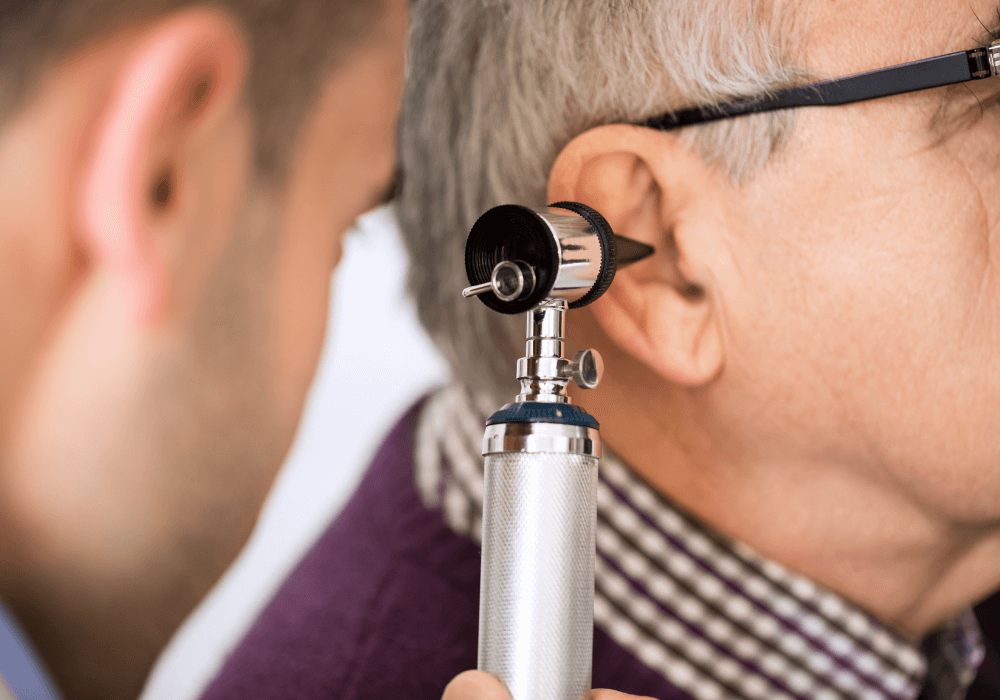
Hearing is a vital part of life but is easily taken for granted. The signs can be subtle at first, but knowing what to look for can help you take action. Getting a hearing health exam is an important step in maintaining your overall well-being.
Struggling to Understand Conversations
One of the most noticeable signs of hearing loss is difficulty understanding conversations, especially in noisy environments. If you find yourself asking people to repeat themselves frequently or misunderstanding words, it could be more than just background noise. It’s common to blame distractions or muffled speech, but if this happens regularly, it’s worth considering a hearing health exam. This is particularly important if you notice the problem when talking to several people at once or in places with ambient sounds, like restaurants or social gatherings.
Turning Up the Volume More Often
Do you find yourself constantly turning up the TV, radio, or phone to hear better? While it’s easy to think the volume level is too low, it might actually be your hearing. When the sound on your devices needs to be louder than what others around you find comfortable, it could be a sign of gradual hearing loss. Small changes in your hearing ability can cause you to increase the volume without realizing it. This is a common early sign that many people overlook until others point it out.
Difficulty Hearing on the Phone
Conversations over the phone can be challenging for those with hearing issues, even when the volume is turned up. If you often struggle to hear the other person clearly or have trouble following along, your hearing could be the cause. Phones filter out many background sounds, so if you’re having difficulty with clarity or understanding during a call, it’s a good idea to schedule a hearing health exam to assess your hearing ability.
Ringing in Your Ears
A ringing, buzzing, or whooshing sound in your ears, known as tinnitus, can be more than just a temporary annoyance. For many, it’s one of the first signs of hearing loss. Tinnitus can vary in intensity and duration, and while it isn’t always linked to hearing damage, it’s a common symptom among those experiencing it. If you notice persistent or frequent ringing in your ears, it’s wise to see a hearing health professional.
Feeling Fatigued After Listening
Listening to conversations or sounds around you shouldn’t feel like hard work. However, for those with hearing loss, the brain has to work harder to process sounds, leading to mental fatigue. You may notice feeling more tired after social events, meetings, or even simple conversations. This added strain can be exhausting over time, which is another indicator that it’s time to get your hearing checked. It’s not just about hearing the sounds themselves, but how your brain processes them, and a hearing health exam can reveal if there’s an underlying issue.
Others Mention Your Hearing Has Changed
Often, the people around you will notice changes in your hearing before you do. Friends, family, or coworkers may comment on your difficulty in hearing or following conversations. While it’s easy to brush off their concerns, they could be noticing things that you’ve become accustomed to over time. Pay attention when others mention your hearing. Taking their observations seriously could be the key to catching hearing loss early and seeking the right treatment before it worsens.
Difficulty Hearing Certain Sounds
Hearing loss doesn’t always happen all at once. You may begin to notice that certain sounds, particularly higher-pitched ones like children’s voices or birds chirping, are harder to hear. This is especially common as we age. If you find that specific sounds are becoming faint or missing from your everyday environment, it could be a sign that you’re experiencing high-frequency hearing loss. A hearing health exam can pinpoint which sounds you’re struggling with and help identify the best course of action to protect your hearing.
